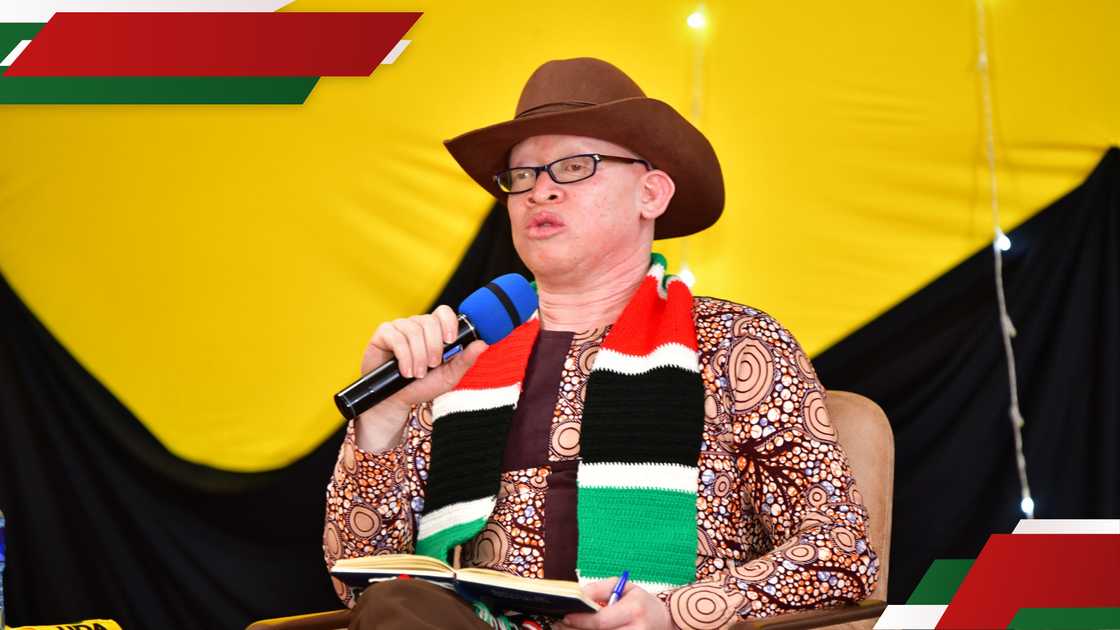State House Operative Rebukes Isaac Mwaura over Conflicting Statement on Public Seal
- President William Ruto's loyalists in the state house seem to be reading from different scripts, hitting out at each other over blunders they commit
- Government spokesperson Isaac Mwaura recently issued two conflicting statements on the custody of the public seal
- The inconsistencies in the spokesperson's pronouncements gave him up for a serious roast, with some of the state house operatives calling his bluff out
Education is Your Right! Don’t Let Social Norms Hold You Back. Learn Online with TUKO. Enroll Now!
There seems to be a disharmony in President William Ruto's inner circle in State House, Nairobi, as the operatives clash over the communication of government matters.

Source: Twitter
Recently, government spokesperson Isaac Mwura found himself on the spot after issuing two conflicting statements over the custody of the Public Seal.
What Isaac Mwaura said over Public Seal
Mwaura, during the weekly briefing on May 20, authoritatively declared that the public seal ought to be under the Head of Public Service, dismissing the quarters that argued the Attorney General is the rightful custodian.
Search option is now available at TUKO! Feel free to search the content on topics/people you enjoy reading about in the top right corner ;)
"The head of public service is the number one public servant in this country, and he has the seal of the president," Mwaura.
His pronouncement sparked reactions, prompting him to issue a clarification a day later.
Later, in another statement, Mwaura said the seal is not supposed to be under the Head of Public Service but instead under the Attorney General's office as per the law.
In defending himself, he said he had been misquoted.
"The public seal is actually under the custody of the attorney general as part of section nine of the Constitution, and if you look at the Office of the Attorney General Act, clause two on the definition of terms, it clearly states exactly that," Mwaura said.
The inconsistencies put him under fire, with operatives within the state house coming out to call his apparent bluff.
A state house insider named Sam Terriz was among those calling out Mwaura's bluff.
Terriz blasted the spokesperson for operating in confusion, hence presumably denting the president's profile.
"Mr. Government Spokesperson I, are you briefing the nation or just vibing with confusion? On 19th May, you said one thing. On May 22, you flipped the script like we wouldn’t notice. Are you speaking for the government or freelancing for Wamunyoro? You’re not supposed to be Kenya Kwanza’s plot twist — you’re supposed to clarify, not confuse. Right now, you’re giving more contradictions than a telenovela. Are you briefing the nation or just vibing with confusion? To one version of the truth… or at least rehearse your lines," Terriz hit out at Mwaura.
The public display of differences spoke to the divisions in Ruto's communication team, which tend to sabotage the delivery of critical information to the public.
Still, some quarters would argue that the differences would fuel healthy competition as the parties strive to outshine each other to please the ultimate boss.
Meanwhile, the Public Seal is recognised in Kenya’s Constitution as a national emblem, plays a crucial role in verifying official state documents.
Who is rightful custodian of Public Seal?
Concerns have been raised about its transfer from the Attorney General's custody, with critics warning that this shift could weaken legal oversight and potentially facilitate unregulated government dealings.
Reports suggest that former Attorney General Justin Muturi opposed the transition, and some insiders believe this resistance contributed to his removal.
His successor, Dorcas Oduor, provided unclear responses when asked about the seal’s current whereabouts.
A November 2023 Executive Order reassigned custody of the seal to the Head of Public Service (HOPS), prompting legal experts like Gitobu Imanyara and Willis Otieno to caution that this decision might contradict constitutional guidelines and disrupt established checks and balances.
Observers argue that granting authority over such a significant national symbol to a presidential appointee—who was neither vetted by Parliament nor explicitly designated within the Constitution—could diminish public confidence and result in legal disputes.
Source: TUKO.co.ke

